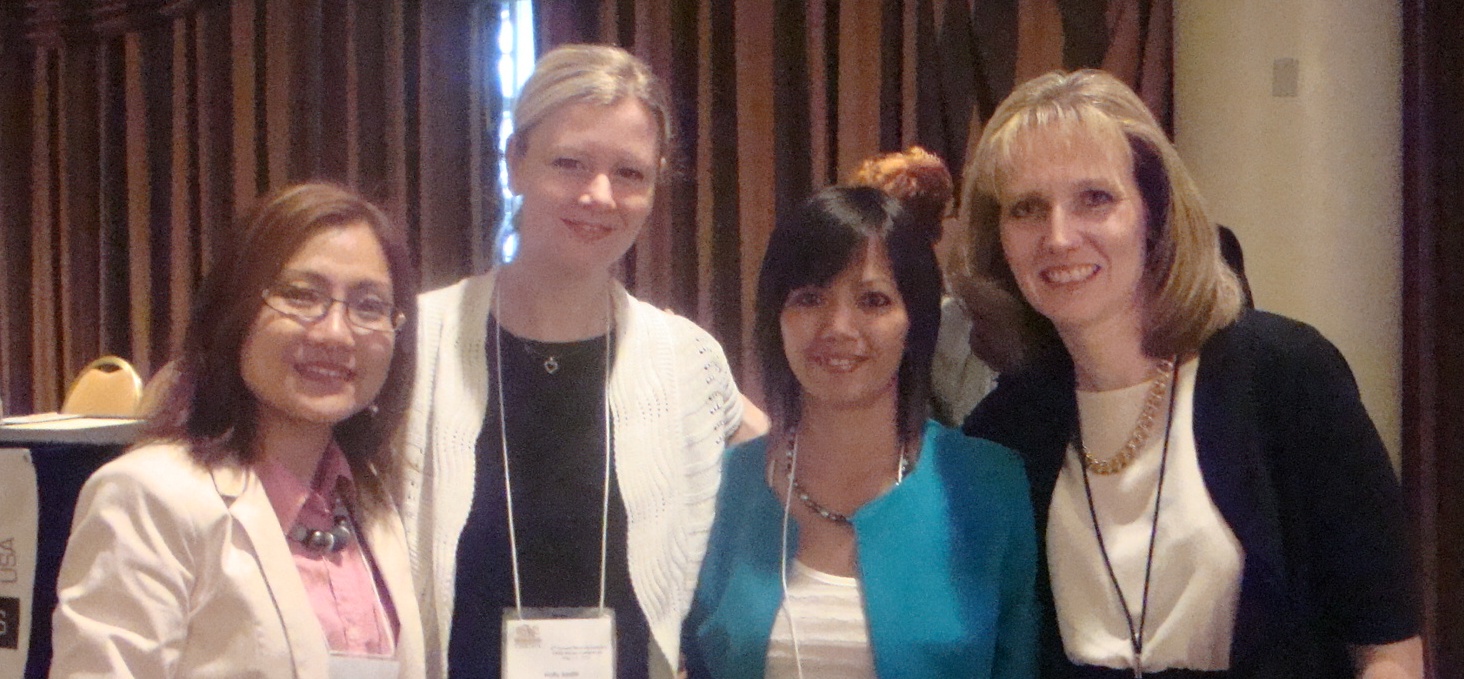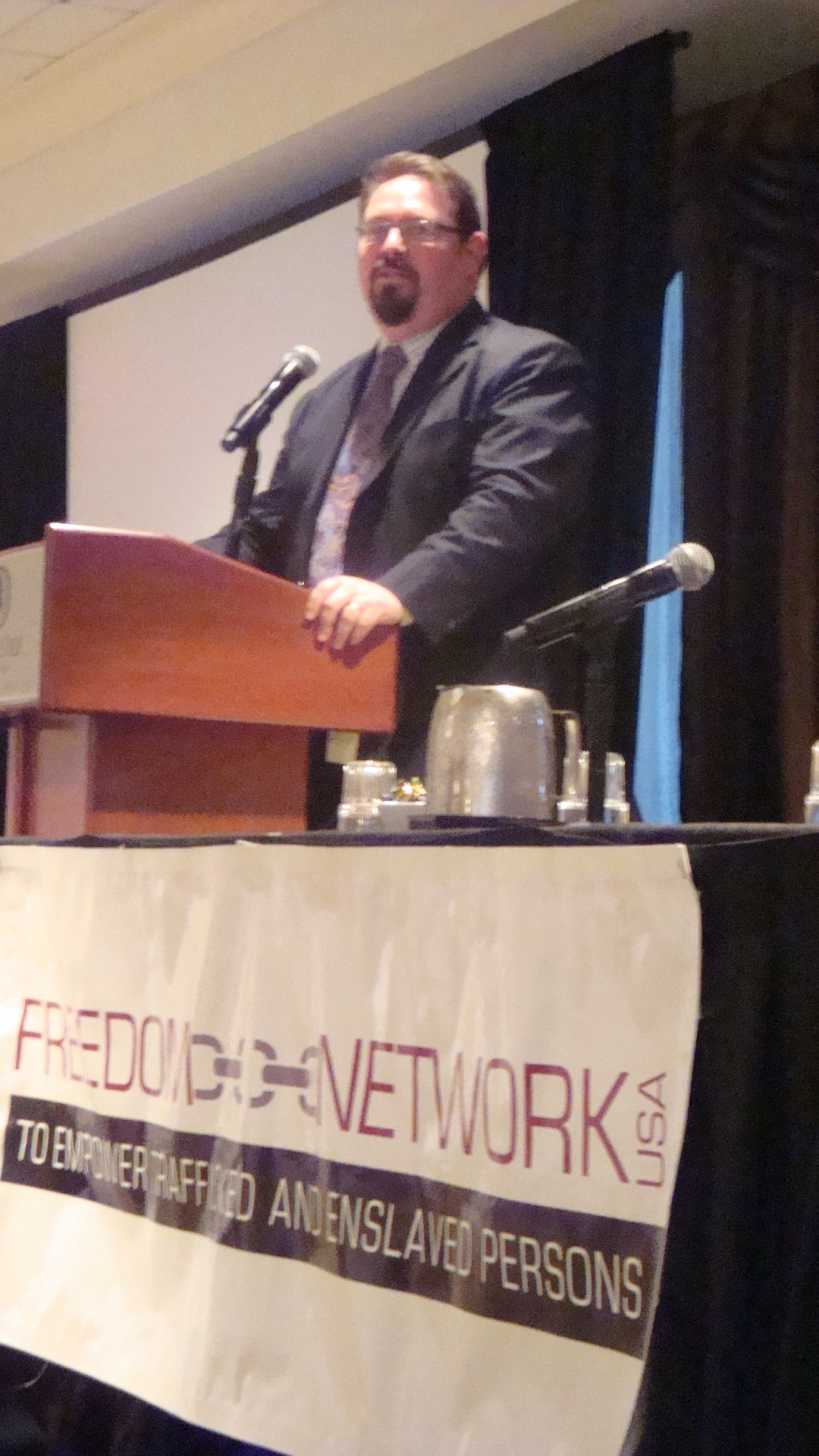I hate driving in Northern Virginia. Although I only live 90 miles from Washington D.C., I never go there. I don’t have the patience. Of course, it probably doesn’t help that I was trafficked in Northern Virginia, so that certainly adds some angst. This is why it was a bit surprising that I took a day off from work to travel to the second day of the Freedom Network Conference. My primary reason for going was the survivor panel discussion. I had talked to a couple of survivors that I wanted to meet in person.
The conference was more than I could have imagined. There is something healing about meeting other survivors. It is even more healing when those survivors are inspirational. I was so impressed with their tremendous acts of courage.
I met Ima Matul, who is the Survivor Organizer for the Coalition to Abolish Slavery and Trafficking (CAST) in Los Angeles. She is a survivor of labor trafficking. She had recently introduced me to the National Survivor Network, which includes labor and sex trafficking survivors from across the nation.
I also met Shandra Woworuntu, a sex trafficking survivor, who works as an empowerment counselor for other trafficking survivors in New York through her organization, Mentari. She promotes the needs of survivors by telling her own story and advocating for legislative changes.
I attended a survivor training led by Ima and another survivor, Stacy Jewell Lewis, who created a play called “7 Layers Captive”. In her play, Stacy addresses the difficult questions about trafficking to educate the public on how women are forced in to prostitution. She addresses the belief systems that “women could always just run” by explaining the complex coercive techniques used by pimps. She delivered a stellar training on how media can “re-victimize” survivors by exploiting their story for profit. The audience was largely organizations that work with survivors, so this training was critical.
I also heard from several government organizations about their current programs to deter human trafficking, including the Department of Defense, the Department of Homeland Security, the Department of Health and Human Services and the U.S. Department of Justice. The keynote address was delivered by Luis CdeBaca, the Ambassador-at-Large for the Office to Monitor and Combat Trafficking in Persons. He stated that the three keys to success were bringing traffickers to justice, survivor participation and the unification of the anti-trafficking movement.
In all of my discussions with survivors, I was most impacted by one particular phrase. I heard several people talk about “coming out” as a trafficking survivor. Of course, I am very familiar with that phrase. I have always been supportive of the LGBTQ community as they address the difficulties of openly expressing their identity. It had not occurred to me that I am on a similar journey. One of the survivors stated that “coming out” changes who you are in the eyes of everyone you meet, and those changes are forever. You can never go back.
I know that “coming out” is not for everyone. In some cases, it may be life threatening. In most cases, there will be judgment from others. However, I think I am at a point where I can’t be one person, while portraying another. It is tempting though. One of the benefits of being a domestic survivor is that I don’t have to obtain a visa to find a job and live in this country (like some of the friends that I met yesterday). As a domestic survivor, I could easily continue my life without ever mentioning my past. That’s just not what is right for me at this time. I guess I can honestly say that it’s time for me to “come out”.





All I can say is I am with you. When you speak up about your own life, you stand for all of us.
Thank you.